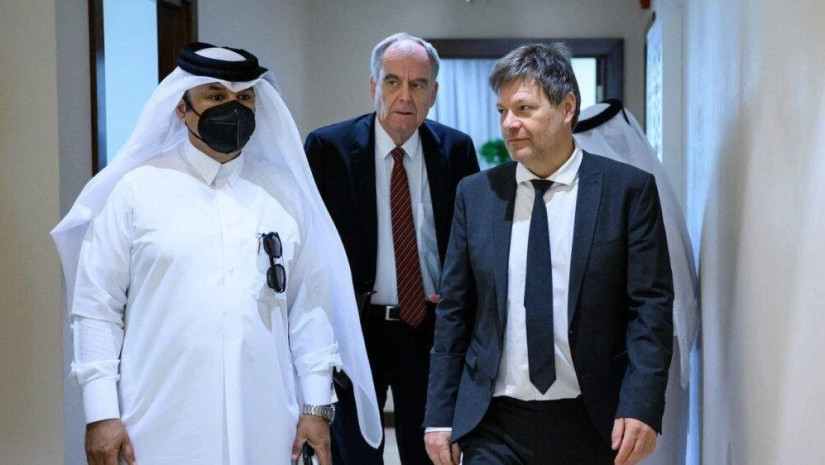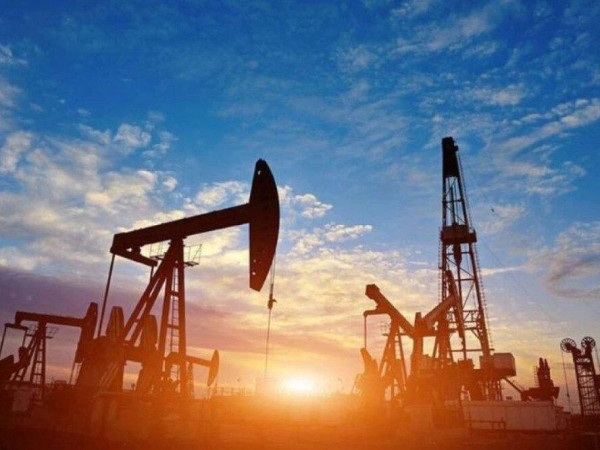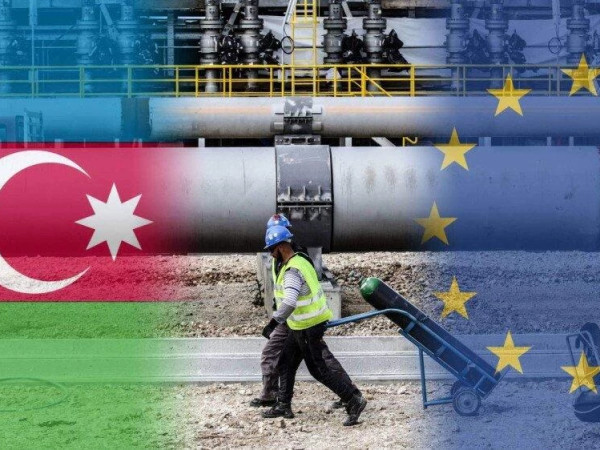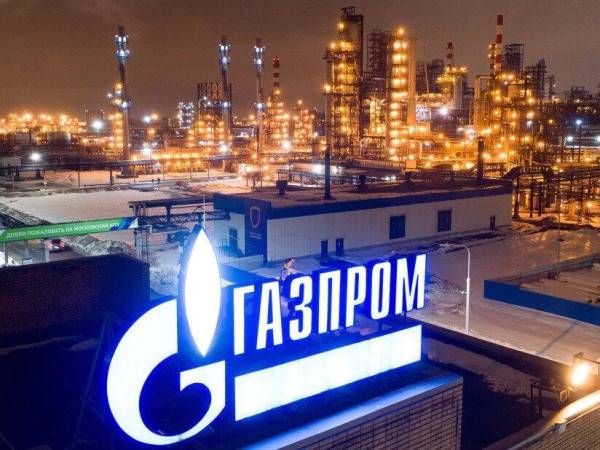Germany and Qatar have agreed upon a long-term energy partnership to help cut reliance on Russian gas over the invasion of Ukraine, German Economic Minister Robert Habeck said Sunday.
Habeck, who is on a two-nation visit to the Arabian Gulf, met with Qatari Emir Sheikh Tamim bin Hamad al-Thani in Doha.
"The day has developed a strong dynamic," Habeck said, adding that the emir had pledged more support than Germany had expected.
"Although we might still need Russian gas this year, in the future it won't be so anymore. And this is only the start," Habeck said.
Qatar is one of the three largest exporters of liquified natural gas (LNG).
Renewable energy projects touted
While the minister's visit was widely expected to secure supplies of LNG for Germany, Habeck said the deal also focuses on developing renewable energy projects and measures that promote energy efficiency.
A spokesperson for the German Economy Ministry in Berlin later confirmed that a deal had been clinched.
"The companies that have come to Qatar with [Habeck] will now enter into contract negotiations with the Qatari side," the spokesperson said.
Berlin plans to bring LNG onboard ships into the country. But there are no terminals to receive them because of the legacy dependency on pipeline gas.
Germany has announced plans to build two new LNG terminals, but they are unlikely to be ready before 2026.
Next stop: UAE
Habeck's trip now moves on to the United Arab Emirates (UAE), which is repositioning itself as a hub for green hydrogen.
The UAE could also help Germany meet its longer-term goal to switch to cleaner energy sources.
Germany is exploring ways to diversify its sources of natural gas in a bid to make the country less dependent on Russia.
However, unlike the United States — which has banned Russian oil exports, Germany says it will need several months, if not longer, to diversify its supplies.
Berlin has already suspended the operating license for the new Nord Stream 2 pipeline, which was meant to deliver Russian natural gas under the Baltic Sea to Germany.
Demand for Russian gas still high
However, the German BDEW energy industry association said last week that Russia's share of Germany's gas supply in January-March, which is not officially published, remained at 40%.
A group of economists estimated last week that EU countries have transferred more than €13.3 billion ($14.7 billion) to Russia for oil, natural gas and coal since the war began.
Source: DW















